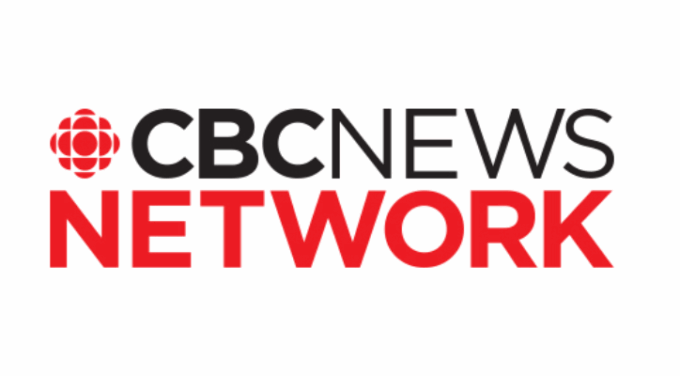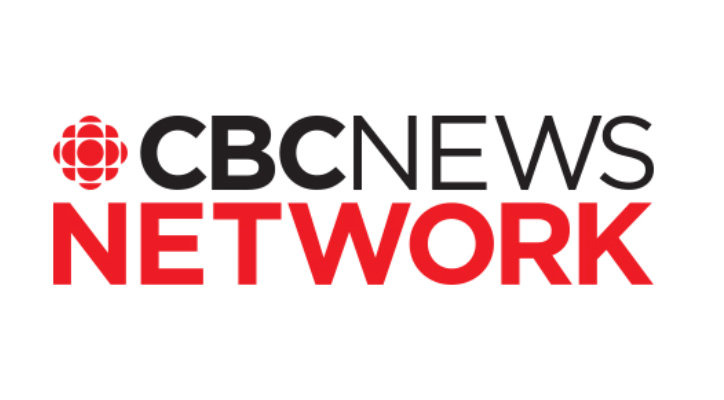


































































CBC News, YouTube screenshot.
Anyone who has doubted the Chomsky-Herman propaganda model of mass media has surely had their skepticism tested over the past twenty-two months. The axiom that media “serve to mobilize support for the special interests that dominate the state” by distorting or suppressing facts is nowhere more evident than in Western reporting on Gaza. Likewise, the model’s depiction of “worthy” versus “unworthy” victims – portraying “murderous aggression as a defense of freedom” – perfectly encapsulates mainstream coverage of Israel’s indiscriminate killing of Palestinian civilians. Consent for this barbarity could not have been manufactured without the uniform complicity of a pliant press. Public media should provide a corrective to corporate distortions; yet Canada’s public broadcaster, the CBC, has repeatedly failed in this duty. By refusing to deliver accurate, comprehensive, and contextually rich reporting on Israel’s assault, it has denied Canadians the information they need to act on conscience and to pressure their government to help end the savagery. In effect, the CBC has made Canadians complicit in genocide.[1]
Like other Western media, Canadian coverage of Gaza suffers from a structural bias rooted in concentrated ownership. Postmedia Network, controlled by a U.S.-based hedge fund, controls roughly 112 Canadian newspapers, all pushing a uniform pro-Israel editorial line. Its flagship, the National Post, churns out content that reads as though it were ghostwritten by Likud — if not for the simplistic formulations more fitting for a middle-school newsletter. Faced with this bleak media landscape, many Canadians turned to the CBC, expecting a more impartial perspective. What they found was a public broadcaster that mirrored the same misleading narratives and manipulative reporting, offering coverage no more reliable than its corporate counterparts. And as Canadians voiced frustration, the CBC responded not with reform, but with craven, self-justifying apologetics.
As with its Western peers, the CBC has systematically stripped essential context from its reporting. The Hamas attack on October 7, 2023, was rarely framed against the backdrop of Israel’s 75-year occupation, repeated international-law violations, or dozens of UN Security Council resolutions condemning its conduct. As Israel’s brutal assault unfolded, the CBC downplayed or omitted critical information. Landmark legal rulings were barely acknowledged: in January 2024, the International Court of Justice (ICJ) found Israel’s actions amounted to a “plausible” genocide; in July, the ICJ declared Israel’s 57-year occupation illegal; in September, the UN General Assembly voted in favor of sanctions, and arrest warrants were issued for Israeli leaders. These decisions, briefly mentioned at the time, vanished from coverage, directly contradicting the CBC’s mission “to learn, understand, and clearly explain the facts to our audience.” During her November 2024 visit to Canada, UN Special Rapporteur Francesca Albanese presented an opportunity to probe the nation’s legal obligations and Israel’s atrocities. CBC ignored Albanese’s calls for a Canadian audit of collaborations with Israel, failed to cover her report documenting Gaza’s “scorched-earth catastrophe,” and did not report that her meetings with Canadian officials were abruptly cancelled, which she attributed to “very vocal, very virulent, very aggressive” pressure from pro-Israel lobby groups. These omissions deprived Canadians of essential knowledge that might have compelled political action.
The CBC also suppressed coverage of the deliberate attack on Gaza’s healthcare system. Letters from U.S. and Canadian healthcare workers warned of the methodical destruction of medical infrastructure, yet the network ignored them. The UN Independent International Commission of Inquiry classified these acts as war crimes and crimes against humanity, and the Lancet estimated Gaza’s death toll at 186,000, yet the CBC suppressed this incriminating evidence, depriving audiences of any grasp of the true magnitude of the crisis and concealing Israel’s premeditated assault on civilian life. Israel’s media blackout in Gaza, and the murder of nearly 200 journalists, likewise received minimal coverage. Even during an aid-drop flight over Gaza, the CBC acceded to Israeli restrictions against filming aerial footage, while ITV News broadcast stark images of the devastation.
CBC’s Office of the Ombudsman, under Jack Nagler, received a flood of complaints. Although the network tried to suggest that complaints were evenly split between pro- and anti-Israel voices, the reality is quite different: most of the pro-Israel complaints came not from individuals but from well-funded organizations – chief among them Honest Reporting Canada (HRC), a billionaire-backed lobby closely aligned with the Israeli government. Nagler euphemistically described HRC as merely “an organization which monitors media coverage of Israel and the Middle East” — analogous to calling the Third Reich an institution dedicated to social reform: technically accurate, but grotesquely evasive of its true purpose. HRC attacks and suppresses any critique of Israel, frequently using antisemitism smears, and nearly 40% of its alerts targeted the CBC. Nagler’s failure to disclose these dynamics is inexcusable. His reviews focus narrowly on content, ignoring the most serious flaw: the CBC’s persistent contextual omissions. In his assessments, Nagler routinely defaults to a “both sides” fallacy, the deliberate pretension that there is equivalence in the asymmetrical power relationship between Israel and Gaza. And, predictably, the reviews almost always find that the CBC upheld its Journalistic Standards and Practices (JSP), with only token criticisms on minor points, and he too often concedes points to HRC, lending legitimacy to its campaign to distort reality.
Numerous examples illustrate the absurdity. To highlight a few illustrative cases: a complainant argued that a host’s “mhm” response to a guest mentioning Gaza’s siege signaled assent and was therefore biased against Israel. Nagler accepted that it could have “affected the way listeners would interpret the segment” – a conclusion that is not only implausible but that also blatantly ignores the undeniable factual reality of Gaza’s siege. A review of the October 17, 2023 strike on al-Ahli Baptist Hospital found Israel’s denial dubious given its damage-control efforts, including promoting a fabricated video and fake audio recordings. Ombudsman Nagler defended the CBC for emphasizing Israeli denials, praising the network for treating the IDF as a “more reliable source” than Hamas. HRC challenged a story about a Palestinian girl who lost both legs in an Israeli strike, claiming Israel’s responsibility was unproven. Nagler admitted Israel was the “obvious” culprit but conceded the complaint, ignoring abundant evidence such as UNICEF’s report documenting “the largest cohort of pediatric amputees in history.” That several of the reviews garnered praise from Honest Reporting Canada is, to say the least, troubling – and deeply revealing. Receiving accolades from such a deceptive and compromised organization raises serious questions about the impartiality and credibility of the CBC’s oversight process.
Independent media critics, most notably the Canadian news website, The Breach, have repeatedly exposed CBC’s biased and substandard reporting. One former CBC producer documented a “chilling effect” in which Palestinian guests were cancelled and staff faced pressure to self-censor. The producer ultimately resigned after being smeared as antisemitic. Editor-in-Chief Brodie Fenlon responded defensively, dismissing her criticisms as “broad conclusions” and framing the controversy as an insoluble “personal and divisive” matter. His maudlin, self-pitying apology, lamenting “friends or families pulled apart by this story” and moments when CBC “stumbled,” amounts to a hollow façade of remorse. It sidesteps systemic issues of framing, sourcing, and omissions. It also ignores a fundamental truth: for one side of the so-called ‘divide’, the emotional toll is unimaginable suffering, while for the other, it is mostly the discomfort of confronting its own complicity in that suffering. And if there is any ignorance about “the story’s history and complexities,” culpability for that lies squarely with the CBC and other Western media due to their near-total omission of the historical context leading up to October 7.
CBC’s coverage exemplifies the mechanics of manufactured consent: selective language, historical erasure, and dehumanization. Gaza has endured the heaviest aerial bombardment in history — 100,000 tons of explosives, equivalent to six Hiroshimas, dropped on a densely populated enclave. Official counts of 62,000 deaths are almost certainly underestimates; some experts suggest the toll approaches half a million. Children account for a devastating proportion, with estimates of 18,000 killed and more than 50,000 killed or injured. If Canadians were consistently confronted with this reality, public outrage would almost certainly compel government action. Instead, the CBC shields its audience from these facts, ensuring moral indifference and passive complicity.
Throughout the crisis, the CBC has consistently capitulated to pro-Israel lobby pressure. CBC’s choices have not merely misinformed; they have implicated Canadians in the ongoing genocide. One CBC staff member described the network’s reporting as “the type of coverage that will one day be taught in schools and museums as a factor that contributed to genocide.” This grim judgment reflects a painful truth: the broadcaster has distorted reality, misrepresented victims, and shielded audiences from the ethical urgency of Gaza’s destruction.
While these journalists and their managers must eventually confront their own conscience, the painful reality is that the rest of us have been implicated in their failure. As Chomsky declares, “What the media are doing is ensuring that we do not act on our responsibilities, and that the interests of power are served, not the needs of the suffering people, nor even the needs of [domestic citizens], who would be horrified if they realized the blood dripping from their hands.” The CBC not only has distorted the reality of Israel’s enormous crimes, but it also has made Canadians complicit in them, their hands stained with the blood of innocent Palestinians.
Notes
1. Edward S. Herman and Noam Chomsky, Manufacturing Consent: The Political Economy of the Mass Media (New York: Pantheon Books, 1988), pp. xi, 37. ↑
The post Gaza and the CBC: The Public Broadcaster Betrays Its Mandate appeared first on CounterPunch.org.
This post was originally published on CounterPunch.org.